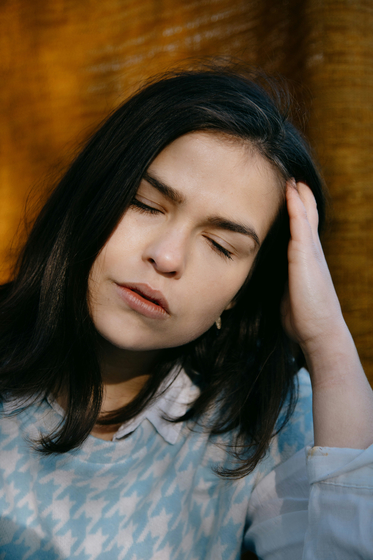Why are women more susceptible to migraines than men?

It has been revealed that women are far more likely to suffer from migraines than men, and researchers from
Why is migraine more common in women than men?
https://theconversation.com/why-is-migraine-more-common-in-women-than-men-265293

Both boys and girls experience migraines as children, but after puberty, women are two to three times more likely to experience them. A 2025 survey in Australia revealed that one in three women suffers from migraines, compared with only one in 15 men.
Migraines are not just a bad headache, but a complex disorder in which the brain processes sensory information abnormally. This can lead to difficulties processing information from the senses, resulting in symptoms such as:
Vision (leading to light sensitivity and glare problems)
-Hearing (leading to noise sensitivity)
Sense of smell (certain smells can cause headaches)
-Tactile sensation (leading to pain in the face and scalp)
Taste (causing taste disorders, nausea, and vomiting)
Migraine attacks usually last from four hours to three days (72 hours), but some cases may last longer. In addition to the symptoms listed above, other symptoms such as a throbbing headache, dizziness, fatigue, and difficulty concentrating may also appear. When diagnosing a migraine, the presence or absence of accompanying symptoms is more important than the 'location of the headache' or 'severity of the headache.'

Puberty is a time when the differences between boys and girls become more apparent. During this time, the human body significantly increases its production of sex hormones. Both men and women secrete
For many women, migraines worsen during periods of hormonal fluctuation, such as puberty, menstruation, pregnancy, and menopause. For example, some women experience migraines at the same time as the decline in estrogen levels associated with the menstrual cycle. Because migraine attacks usually begin a few days before bleeding, migraines can sometimes predict the timing of menstruation.
Women who suffer from migraines tend to be more sensitive to hormonal changes, especially sudden drops in estrogen, but subtle hormonal shifts can also trigger migraines. These hormonal changes that occur before a migraine hits can activate brain processes that cause migraines, such as cortical spreading depression . These are like very slow waves of electrical activity that spread throughout the brain, causing some areas to function less well than others after they pass through.
The decline in estrogen also affects the reception and processing of information via the trigeminal nerve, which plays a key role in the onset and persistence of migraines.

During pregnancy, even if migraines have been well controlled up until that point, they often become unstable again and attacks become more likely. Migraine symptoms can become uncontrollable, especially in the first trimester, due to the rapid hormonal changes necessary to maintain pregnancy. However, they usually subside between the second and third trimesters when hormonal changes stabilize.
However, in the third trimester of pregnancy, estrogen levels can rise to 30 times higher than before pregnancy, and progesterone levels can rise to 20 times higher than before pregnancy. After giving birth, when these hormone levels drop sharply and return to normal, migraine attacks can suddenly worsen again.
The ovaries produce estrogen in a cyclical manner, but during menopause, the number of eggs in the ovaries decreases, which can cause irregular surges in estrogen production. This irregular production of estrogen can cause irregular spikes in migraine attacks, and when combined with menopausal symptoms, it can become a bigger problem.
Hormonal contraceptives and menopausal hormone therapy may also affect migraine control. Regular daily hormone replacement therapy may help control symptoms such as hormone-sensitive headaches, but supplementing hormones may worsen migraines.

Genetics also plays a role in migraines. Migraines are apparently inherited from the maternal side of the family, as mothers pass on mitochondria to their children . Mitochondria are responsible for controlling energy within cells, but migraine sufferers have reduced enzymes in their mitochondria, leaving the brain in a state of energy deficiency. When a migraine attack occurs under these conditions, stress on the brain increases, further worsening the condition. The same mechanism is used by extra stressors such as lack of sleep, hunger, and mental stress to trigger migraines and worsen the pain.
There is also a strong link between migraines and anxiety and depression in women, which are also symptoms that women are more likely to develop in response to stressful life events.
If you suspect hormones may be affecting your migraine attacks, keeping a record of your headaches and other symptoms can be helpful. Monash University researchers recommend keeping a record of the days your migraines occur and your period each month to look for patterns.
Related Posts:
in Science, Posted by logu_ii







